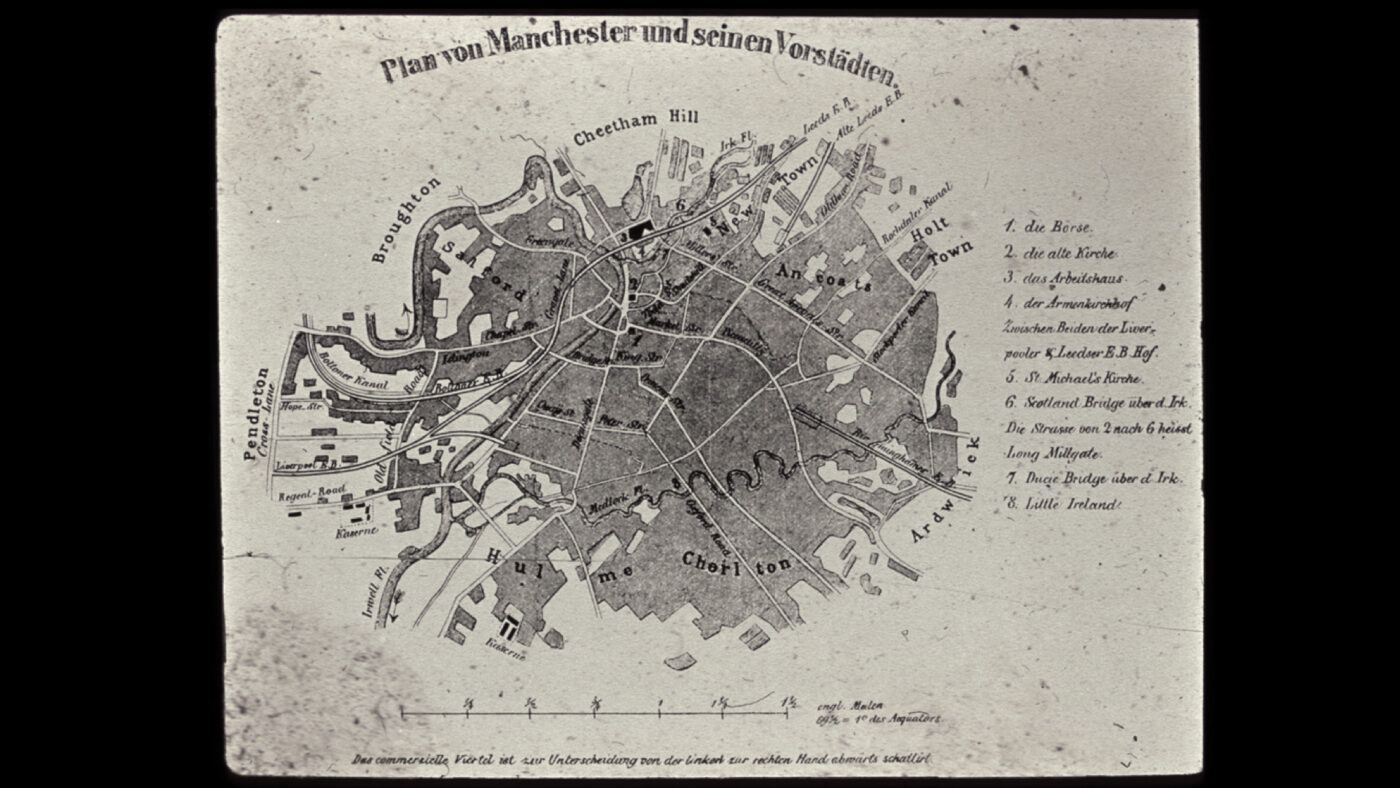At Open Data Manchester, our data loom isn’t just a tool—it’s a reminder of Manchester’s profound lesson about technological upheaval and social consequence.
When mechanisation transformed weaving, it wasn’t just an economic shift. The Luddites’ uprising challenged more than machines—they fought against the devaluation of skilled craft and human dignity. As Manchester’s population exploded with displaced workers and Irish famine refugees, industrialists prospered whilst communities fractured.
It was here that Engels, whose father owned a Manchester mill, witnessed this “Hell upon Earth” firsthand. His observations of industrial Manchester’s squalor and exploitation informed The Condition of the Working Class in England(1845) and later, his collaboration with Marx on The Communist Manifesto. Manchester’s industrial transformation didn’t just reshape economics—it fundamentally altered how we understand the relationship between technology, capital, and human dignity.
The social breakdown Engels witnessed in Manchester wasn’t unique to that city—it was part of a broader pattern that French sociologist Émile Durkheim would later identify as anomie: the way rapid technological change destroys social norms and leaves people without purpose or place. In Suicide (1897), Durkheim showed how this social upheaval translates into individual despair and collective disaffection—mirroring what Engels had observed in Manchester’s mills and slums.
Fast-forward to today’s AI revolution.
Amidst the polarised discourse—AI as either existential threat or universal panacea—the reality is probably more mundane but no less significant. We’re witnessing an acceleration of capital-driven efficiency: the same trajectory from Adam Smith through Taylorism to today’s proceduralism, now extended into knowledge work.
Recent research shows white-collar jobs becoming increasingly prescriptive and measured, with reduced discretion. Yes, AI can handle onerous tasks—from reducing teachers’ administrative burdens to supporting advice-giving workflows. But will this free up time for meaningful work, or simply create space for more standardised tasks and greater workloads?
The historical pattern suggests caution.
Here’s the deeper concern: anomie breeds the conditions where conspiracy theories and populist authoritarianism take root. When people feel disconnected from agency and meaning, they become vulnerable to simplistic explanations and strongman solutions.
This is what our work at Open Data Manchester is trying to address. We help people and communities understand data about themselves—not just as passive subjects, but as active participants who can use data for positive social benefit and assert their rights within data systems.
The solution isn’t just technological—it’s social.
We need to create spaces where people can engage collectively with the data-driven systems that increasingly govern their lives. Where communities can understand, question, and shape how these technologies affect them. Where the benefits of our data-enabled society reach everyone, not just those who control the algorithms.
Manchester’s industrial revolution taught us that technological progress without social consideration creates not just inequality, but the breakdown of social cohesion itself. As we navigate AI’s impact, we have the opportunity to learn from this history—to ensure that increased efficiency serves human flourishing, not just capital accumulation.

